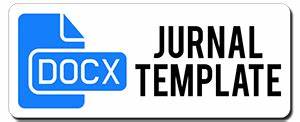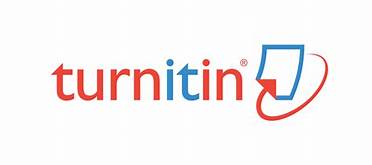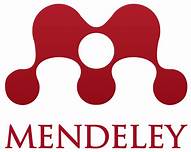Efektivitas Program Upskilling dan Reskilling bagi Peningkatan Kompetensi Guru SMK di Kota Medan
Abstract
The purpose of this study was to determine and analyze the effectiveness of upskilling and reskilling programs and the professional competence of vocational teachers before and after attending upskilling and reskilling training in Kota Medan. This research uses a combination approach (mix method), with a sequential exploratory. The study began by collecting qualitative data and continued with quantitative research on the professional competence of vocational school teachers before and after attending upskilling and reskilling training using a questionnaire. The research was carried out at SMK Negeri 2 Medan, SMK Negeri 7 Medan, SMK Negeri 9 Medan, SMK Swasta Dwi Warna and SMK Swasta Taman Siswa Medan. Primary data sources come from the results of interviews and questionnaires to 20 teachers who have attended upskilling and reskilling training. The findings of the study showed that the upskilling and reskilling program for increasing the professional competence of vocational teachers in Kota Medan was effective, and from the results of the questionnaire it was seen that there was an increase in the professional competence of vocational teachers after attending this training where the average data of teacher professional competence before attending upskilling and reskilling training is 45.30 and the average professional competence of teachers after attending the upskilling and reskilling training is 49.95, with an average increase in teacher professional competence of 4.65, the results of the paired sample test correlations about the relationship (correlation) between the data before attending the upskilling and reskilling training and the data after attending the upskilling and reskilling training obtained a correlation value of 0.909, the results of the paired sample test obtained a data significance value of 0.000 <0.005 which means that there is a significant difference between the professional competence of teachers before attending the training and after attending the training. upskilling and reskilling training.
Keywords
Full Text:
PDFReferences
Anggara, dkk. 2019. Metode Penelitian. Pamulang: UNPAMPRESS
Agustinova, dkk. 2015. Memahami Metode Penelitian Kualitatif; Teori dan Praktik. Yogyakarta: Calpulis
Akrim, dkk. 2019. Menjadi Generasi Pemimpin: Apa yang dilakukan sekolah?. Yogyakarta: Bildung
Akrim, dkk. 2020. Book Chapter Covid-19 & Kampus Merdeka Di Era New Normal. Medan: UMSU Press
Annisa, N., Akrim, Manurung, A.A. IJEMS: Indonesian Journal of Education and Mathematical Science 2020 Vol. 1, No. 2, pp. 91-95: Development of Teachers Professional Competency In Realizing Quality of Human Resources In The Basic School.
Aqib, Zainal. 2020. Sukses Uji Kompetensi Guru. Bandung: Yrama Widya.
Ban, C, and S. R. Faerman. 1990. Issues in the Evaluation of Management Training. Public Productivity & Management Review, Spring
Bienbrauer, H. 1987. Trouble Shooting Your Training Program. Training and Development Journal
Budiani, Ni Wayan. Jurnal Ekonomi dan Sosial, Vol.2, No.1, 2007: Efektivitas Program Penanggulangan Pengangguran Karang Taruna Eka Taruna Bhakti Desa Sumerta Kelod Kecamatan Denpasar Timur Kota Denpasar. Bali
Danim, Sudarwan, Prof, Dr. 2015. Pengembangan Profesi Guru. Jakarta: Prenada Media Group
Fuad, Anis dkk. 2014. Panduan Praktis Penelitian Kualitatif. Yoyakarta: Graha Ilmu
Hasibuan, Malayu. 2018. Manajemen Sumber Daya Manusia. Jakarta: PT. Bumi Aksara
Indrawijaya, A.I. 2010. Teori, Perilaku, dan Budaya Organsasi. Bandung: Refika Aditama
Kompri, M.Pd.I. 2017. BELAJAR Faktor-faktor Yang Mempengaruhinya. Yogyakarta: Media Akademi
Kusdi, Dr. 2009. Teori Organisasi Dan Administrasi. Jakarta Selatan: Salemba Humanika
Makmur. (2011). Efektivitas Kebijakan Kelembagaan Pengawasan. Jakarta: PT Refika Aditama
Mulyana, D. (2000). Human Communication Prinsip-prinsip Dasar. Bandung: PT Remaja Rosdakarya.
Pasolong, Harbani. 2007. Teori Administrasi Publik. Bandung: Alfabeta
Payong, Marselus R. 2011. Sertifikasi Profesi Guru (Konsep Dasar, Problematika, dan Implementasinya). Jakarta: PT Indeks
Permana, Septian Aji. 2017. Kompetensi Guru IPS; Sebuah Kajian Pendekatan Kontruktivisme. Yogyakarta: Media Akademi
Prasetia, I., Akrim & Sulasmi, E. Jurnal Tarbiyah 27 (1) (2020) 12-32: Effective Competency Based School Model.
Pratiwi, Sri Nurabdiah. 2020. Manajemen Strategi Sumber Daya Manusia Pendidikan di Era 4.0. Jurnal EduTech Vol. 6 No. 1 Maret 2020
Prihastomo, Thomas Ambar dkk. 2021. ATMI Merakit Pendidikan Vokasi Untuk Bangsa. Yogyakarta: Kanisius
Rukajat, Ajat. 2018. Pendekatan Penelitian Kualitatif. Yogyakarta: Deepublish
Rusman, 2012. Model-Model Pembelajaran Mengembangkan Profesionalisme Guru. Jakarta: Raja Grafindo
Satori, Djaman, dkk. 2020. Metodologi Penelitian Kualitatif. Bandung: ALFABETA
Streers, Richard M. 1985. Efektivitas Organisasi. Jakarta: Erlangga
Sugiyono. 2013. Memahami Penelitian Kualitatif. Bandung: Alfabeta Indonesia
Susanto, Ahmad. 2016 Teori Belajar dan Pembelajaran di Sekolah Dasar. Jakarta: Prenadamedia Group
Tannady, Hendy. 2017. Manajemen Sumber Daya Manusia. Yogyakarta: Expert
Undang-undang No 14 Tahun 2005 Tentang Guru dan Dosen
Universitas Muhammadiyah Sumatera Utara. 2019. Pedoman Penyusunan Proposal dan Tesis Pascasarjana UMSU. Medan : Pasca Sarjana Universitas Muhammadiyah Sumatera Utara
Widjaja. 2008. Pengantar Ilmu Komunikasi. Jakarta: Rieneka Cipta.
Wijayanti, Sri Hapsari, dkk. 2019. Kunci Guru Profesional. Jakarta: Media Akademi.
www.vokasi.kemdikbud.go.id/Pedoman Pelaksanaan Upskilling dan Reskilling Guru Kejuruan pada Sekolah Menengah Kejuruan Berstandar Industri Tahun 2020
DOI: https://doi.org/10.30596/jmp-dmt.v4i1.12753
Refbacks
- There are currently no refbacks.







